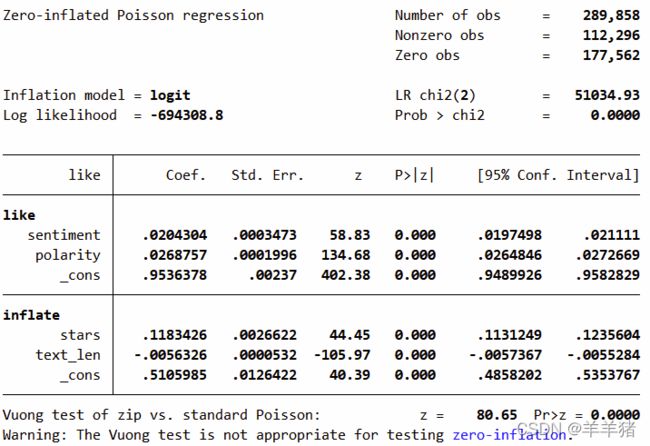- 【AI论文】迈向大型推理模型:大型语言模型增强推理综述
东临碣石82
人工智能语言模型自然语言处理
摘要:语言长久以来被视为人类推理不可或缺的工具。大型语言模型(LLM)的突破激发了利用这些模型解决复杂推理任务的浓厚研究兴趣。研究人员已经超越了简单的自回归词元生成,引入了“思维”的概念——即代表推理过程中间步骤的词元序列。这一创新范式使LLM能够模仿复杂的人类推理过程,如树搜索和反思性思维。近期,一种新兴的学习推理趋势采用强化学习(RL)来训练LLM掌握推理过程。这种方法通过试错搜索算法自动生成
- 线性回归:从基础到进阶的全面解析
tester Jeffky
大模型线性回归机器学习算法
线性回归:从基础到进阶的全面解析线性回归是机器学习中最基本的算法之一,广泛应用于预测和分析。本文将详细介绍线性回归的基本概念、数学原理、实现方法以及在实际应用中的注意事项。我们将通过丰富的代码示例来展示如何从头开始构建一个简单的线性回归模型,并逐步深入到更复杂的场景。1.线性回归的基本概念1.1什么是线性回归?线性回归是一种用于建模两个或多个变量之间关系的统计方法。它假设因变量(目标变量)与一个或
- 软件工程练习:模块化,单元测试,回归测试,TDD
SoftwareTeacher
pythonjava编程语言人工智能大数据
这是《构建之法》实战教学的一部分。适合作为同学们的第二个程序作业。第一个程序作业:请看“概论”一章的练习,或者老师的题目,例如这个。作业要求:软件工程的作业越来越有意思了,我们在第一个作业中,用各种语言实现了一个命令行的四则运算小程序。我们看看如果要把我们的小程序升级为能稳定运行,解决用户问题的软件,应该怎么做。建议在做下面的题目的时候,采用结对编程的方式,在练习中,让同学们学会模块化编程,信息隐
- 【机器学习:二十六、决策树】
KeyPan
机器学习机器学习决策树人工智能算法深度学习数据挖掘
1.决策树概述决策树是一种基于树状结构的监督学习算法,既可以用于分类任务,也可以用于回归任务。其主要通过递归地将数据划分为子集,从而生成一个具有条件结构的树模型。核心概念节点(Node):每个节点表示一个特定的决策条件。根节点(RootNode):树的起点,包含所有样本。分支(Branch):每个分支代表一个条件划分的结果。叶节点(LeafNode):终止节点,表示最终的决策结果。优点直观可解释:
- 【经典必看】对数价格刻度 vs. 线性价格刻度:有什么区别?Logarithmic Price Scale vs. Linear Price Scale: What‘s the Difference?
精通代码大仙
投资数据挖掘python机器学习人工智能大数据深度学习自然语言处理
对数价格刻度vs.线性价格刻度:有什么区别?对数价格刻度vs.线性价格刻度:概览股票图表的解读可以根据查看数据时使用的不同价格刻度而有所不同。大多数在线和经纪商图表软件可以显示不同风格的图表。最常用的两种价格刻度用于分析价格变动:对数价格刻度—也称为“对数”—表示价格间距取决于基础资产价格的变化百分比。这通常是默认的图表样式。线性价格刻度—也称为“算术”—表示价格在Y轴上的间距是等距的。线性图表显
- linux进程sl状态,linux进程状态s和sl的区别
weixin_39830688
linux进程sl状态
PROCESSSTATECODESHerearethedifferentvaluesthatthes,statandstateoutputspecifiers(header"STAT"or"S")willdisplaytodescribethestateofaprocess:Duninterruptiblesleep(usuallyIO)IIdlekernelthreadRrunningorrun
- linux进程状态 Ss,Ss+,D,R+,S<
Thinkcortex
Linux
ps-auxHerearethedifferentvaluesthatthes,statandstateoutputspecifiers(header"STAT"or"S")willdisplaytodescribethestateofaprocess:Duninterruptiblesleep(usuallyIO)Rrunningorrunnable(onrunqueue)Sinterrupti
- 机器学习特征重要性之feature_importances_属性与permutation_importance方法
一叶_障目
机器学习python数据挖掘
一、feature_importances_属性在机器学习中,分类和回归算法的feature_importances_属性用于衡量每个特征对模型预测的重要性。这个属性通常在基于树的算法中使用,通过feature_importances_属性,您可以了解哪些特征对模型的预测最为重要,从而可以进行特征选择或特征工程,以提高模型的性能和解释性。1、决策树1.1.sklearn.tree.Decision
- 机器学习-期末测试
难以触及的高度
机器学习python人工智能
机器学习-期末测试线性回归1.代码展示#coding=UTF-8#拆分训练集和测试集importmatplotlib.pyplotaspltfromsklearn.model_selectionimporttrain_test_split#是线性回归类是sklearn写好的根据梯度下降法fromsklearn.linear_modelimportLinearRegressionimportpand
- 基于R语言的现代贝叶斯统计学方法(贝叶斯参数估计、贝叶斯回归、贝叶斯计算实践过程
xiao5kou4chang6kai4
统计生态农业r语言回归贝叶斯统计学线性回归
专题一贝叶斯统计学的思想与概念1.1信念函数与概率1.2事件划分与贝叶斯法则1.3稀少事件的概率估计1.4可交换性1.5预测模型的构建专题二单参数模型2.1二项式模型与置信域2.2泊松模型与后验分布2.3指数族模型与共轭先验专题三蒙特卡罗逼近3.1蒙特卡罗方法3.2任意函数的后验推断3.3预测分布采样3.4后验模型检验专题四正态模型4.1均值与条件方差的推断4.2基于数学期望的先验4.3非正态分布
- css‘s hover VS mobile
溪i
服务器运维
.animation{animation:30smoveinfinitelinear;/*&:hover{animation-play-state:paused;*/}原本写的好好的,测试说:“移动端点击滚动条,跳转到其他页面后,返回当前页面,滚动条不滚动;可以优化位点击后继续滚动”哎,改吧!setPause(true)}//onTouchEnd={()=>setPause(false)}onMo
- 通俗易懂之样条函数的原理、计算、案例、python实现
智识小站
可解释机器学习python算法
理解样条函数(SplineFunctions)是掌握广义加性模型(GAMs)及其他非线性回归技术的关键。样条函数通过分段多项式的形式,在不同区间内灵活地拟合数据,从而捕捉复杂的非线性关系。本文将更为详细地讲解样条函数的原理、具体示例以及在Python中的实现方法。如果这篇文章对你有一点点的帮助,欢迎点赞、关注、收藏、转发、评论哦!我也会在微信公众号“智识小站”坚持分享更多内容,以期记录成长、普及技
- 神经网络常见操作(卷积)输入输出
被放养的研究生
计算机视觉神经网络深度学习机器学习
卷积dim=d的tensor可以进行torch.nn.Convnd(in_channels,out_channels),其中n=d-1,d-2对于torch.nn.Convnd(in_channels,out_channels),改变的是tensor的倒数n+1维的大小全连接使用torch.nn.Linear(in_features,out_features,bias)实现Y=XWT+b,其中X的
- 【机器学习:二十七、决策树集合】
KeyPan
机器学习机器学习决策树人工智能数据挖掘深度学习算法分类
1.决策树集合的概述决策树集合是一种基于多个决策树模型集成的机器学习方法,通过组合多个弱学习器(决策树)形成一个强学习器,显著提升预测性能和泛化能力。核心思想集成学习的核心是通过结合多个模型的优点,降低单个模型的偏差与方差,提高整体的准确性和鲁棒性。决策树集合利用多棵树的组合,减少了单棵树可能出现的过拟合或对噪声的敏感性。主要优势性能提升:在分类和回归任务中通常表现优于单独的决策树。稳定性更强:对
- 基于python的时空地理加权回归(GTWR)模型
有梦想的Frank博士
数据处理数据分析回归空间分析时空异质性
一、时空地理加权回归(GTWR)模型时空地理加权回归(GTWR)模型是由美国科罗拉多州立大学的AndyLiaw、StanleyA.Fiel和MichaelE.Bock于2008年提出的一种高级空间统计分析方法。它是在传统地理加权回归(GWR)模型的基础上发展起来的,通过结合时间和空间两个维度,提供了一种更为灵活和精确的时空数据分析手段。背景和发展传统的地理加权回归(GWR)模型主要关注地理空间上的
- 软件测试之单元测试
程序员三藏
单元测试python测试工具测试用例职场和发展自动化程序人生
一、什么是单元测试?单元测试是指,对软件中的最小可测试单元在与程序其他部分相隔离的情况下进行检查和验证的工作,这里的最小可测试单元通常是指函数或者类;单元测试属于最严格的软件测试手段,是最接近代码底层实现的验证手段,可以在软件开发的早期以最小的成本保证局部代码的质量。另外,单元测试都以自动化的方式执行,所以在大量回归测试的场景下执行单元测试,更能提高测试效率,另外,也可以帮助开发工程师改善代码的设
- Serverless不香了?深扒其背后的巨大骗局!
人工智能
Serverless解决方案正逐渐回归到服务器上。我最近在《Serverless悼词》(AEulogyForServerless)一文中讨论了这个问题。这篇文章的最初想法是我对另一篇关于微服务的文章的更新。但后来我开始写这篇文章时,就有了一些创意。最终的结果就是这篇观点多于事实的文章。我还以为这没什么。我的意思是,每个人都知道Serverless是个骗局,对吗?看来不是。所以我收到了很多负面评论。
- 软件测试基础入门
运筹帷幄小红花
软件测试软件测试
一、基础概念什么是软件:控制计算机硬件的工具,操作系统软件、应用软件软件基本组成:客户端、服务器、数据库软件产生过程:需求构思-->需求文档-->UI/UE-->产品研发-->产品测试-->部署上线什么是软件测试:使用技术手段验证软件是否满足需求软件测试的目的:减少软件中的缺陷,保证软件质量;二、主流技术1、功能测试:执行测试用例2、自动化测试:通过工具或代码执行测试用例,场景:回归测试,新增功能
- 机器学习和深度学习的概念
你好呀我是裤裤
深度学习笔记机器学习深度学习人工智能
MachineLearning机器学习,可以看作是找一个函数。这个函数是人类找不到的,所以交给机器来找。DifferenttypesofFunctions**Regression:**函数的输出是一个数值forexample:**Classification:**给出选项,让机器去选择。forexample:检测一个邮件是不是垃圾文件,就可以通过这个来做。选项是两个:垃圾文件or非垃圾文件。下面,
- Python AI教程之二十一:监督学习之支持向量机(SVM)算法
潜洋
人工智能Python中级支持向量机算法机器学习python
支持向量机(SVM)算法支持向量机(SVM)是一种功能强大的机器学习算法,广泛用于线性和非线性分类以及回归和异常值检测任务。SVM具有很强的适应性,适用于各种应用,例如文本分类、图像分类、垃圾邮件检测、笔迹识别、基因表达分析、人脸检测和异常检测。SVM特别有效,因为它们专注于寻找目标特征中不同类别之间的最大分离超平面,从而使其对二分类和多分类都具有鲁棒性。在本大纲中,我们将探讨支持向量机(SVM)
- Transformer 架构对比:Dense、MoE 与 Hybrid-MoE 的优劣分析
XianxinMao
transformer架构深度学习
1.LLM基础架构类型DenseTransformerMoE(MixtureofExperts)TransformerHybrid-MoETransformer2.Transformer按照编码方式分类单向自回归模型(如早期GPT系列)双向模型(如BERT)编码器-解码器模型(如BART,T5)DenseTransformerDenseTransformer的优势是什么DenseTransform
- 【人工智能】人工智能的10大算法详解(优缺点+实际案例)
ChatGPT-千鑫
人工智能人工智能算法gpt-3AI编程gptcodemoss能用AI
人工智能(AI)是现代科技的重要领域,其中的算法是实现智能的核心。本文将介绍10种常见的人工智能算法,包括它们的原理、训练方法、优缺点及适用场景。1.线性回归(LinearRegression)模型原理线性回归用于建立自变量(特征)与因变量(目标)之间的线性关系。其目标是寻找最佳拟合直线,使得预测值与实际值之间的误差最小化。模型训练通过最小二乘法来最小化预测值与真实值之间的误差,得到线性回归方程的
- 从字符串使用看Golang和Rust对内存使用的区别
若者いChiang
golangrust开发语言
从字符串使用看Golang和Rust对内存使用的区别今天从Rust偶然回到Golang的世界,怎么写代码怎么别扭,总是忍不住在句子结尾加个分号…看到golang的字符串使用起来特别爽可以到处复制疯狂乱用,有一种从部队宿舍豆腐块被子的生活回归到居家肥宅的随意感,想起好久之前看的golang底层有关的内容,就写点东西来比较一下golang和rust对string的使用。Go的字符串在Go中,每个字符串
- 机器学习——逻辑回归
口_天_光健
python机器学习逻辑回归
逻辑回归技术文档目录简介逻辑回归的基本概念逻辑回归的数学原理逻辑回归的实现步骤代码示例逻辑回归的应用逻辑回归的优化方法逻辑回归的局限性逻辑回归的扩展与变体逻辑回归与其他算法的对比总结简介逻辑回归(LogisticRegression)是一种广泛应用于分类问题的统计方法。尽管名字中有“回归”二字,但逻辑回归实际上是一种分类算法,主要用于二分类问题,但也可以通过扩展用于多分类问题。逻辑回归通过使用逻辑
- 从RNN到Transformer:生成式AI技术演变与未来展望
非著名架构师
人工智能rnntransformer
生成式人工智能(GenerativeAI)近年来取得了令人瞩目的进展,其背后的核心技术是自回归模型的不断演进。从传统的递归神经网络(RNN)到革命性的Transformer架构,本文将全面剖析这一技术发展历程。一、RNN:生成式模型的起点1.RNN的基本原理递归神经网络(RecurrentNeuralNetwork,RNN)是一种专为处理序列数据设计的神经网络架构。其核心思想是通过循环连接的隐藏状
- 不用背着电脑到处跑!用好这个远程专家就够了
因工作性质所致,我时常辗转于不同的工作地点。虽说各办公场地均配备有台式电脑,可均为公用设备,且配置较为普通。起初,为了保证工作效率与个人使用习惯,我总是背着自己的游戏本往返。但游戏本过于厚重,长时间携带着实疲惫不堪,于是我想到了远程控制这一巧妙的解决方案。远程控制软件的妙处在于,它能够借助自己的电脑搭建专属的“云桌面”。如此一来,便能回归到自己所熟悉的办公环境之中,像Office系列等常用办公软件
- jupyter notebook练手项目:线性回归——学习时间与成绩的关系
橙意满满的西瓜大侠
机器学习jupyter线性回归机器学习
线性回归——学习时间与学习成绩的关系第1步:导入工具库pandas——数据分析库,提供了数据结构(如DataFrame和Series)和数据操作方法,方便对数据集进行读取、清洗、转换等操作。matplotlib——绘图库,pyplot提供了一系列简单易用的绘图函数,用于创建各种类型的图表,如折线图、散点图、柱状图等。%matplotlibinline——使matplotlib绘制的图像嵌入在Jup
- 高端密码学院笔记285
柚子_b4b4
高端幸福密码学院(高级班)幸福使者:李华第(598)期《幸福》之回归内在深层生命原动力基础篇——揭秘“激励”成长的喜悦心理案例分析主讲:刘莉一,知识扩充:成功=艰苦劳动+正确方法+少说空话。贪图省力的船夫,目标永远下游。智者的梦再美,也不如愚人实干的脚印。幸福早课堂2020.10.16星期五一笔记:1,重视和珍惜的前提是知道它的价值非常重要,当你珍惜了,你就真正定下来,真正的学到身上。2,大家需要
- 【华为OD技术面试真题 - 技术面】- python八股文真题题库(1)
算法大师
华为od面试python
华为OD面试真题精选专栏:华为OD面试真题精选目录:2024华为OD面试手撕代码真题目录以及八股文真题目录文章目录华为OD面试真题精选1.数据预处理流程数据预处理的主要步骤工具和库2.介绍线性回归、逻辑回归模型线性回归(LinearRegression)模型形式:关键点:逻辑回归(LogisticRegression)模型形式:关键点:参数估计与评估:3.python浅拷贝及深拷贝浅拷贝(Shal
- Python实现简单的机器学习算法
master_chenchengg
pythonpython办公效率python开发IT
Python实现简单的机器学习算法开篇:初探机器学习的奇妙之旅搭建环境:一切从安装开始必备工具箱第一步:安装Anaconda和JupyterNotebook小贴士:如何配置Python环境变量算法初体验:从零开始的Python机器学习线性回归:让数据说话数据准备:从哪里找数据编码实战:Python实现线性回归模型评估:如何判断模型好坏逻辑回归:从分类开始理论入门:什么是逻辑回归代码实现:使用skl
- 设计模式介绍
tntxia
设计模式
设计模式来源于土木工程师 克里斯托弗 亚历山大(http://en.wikipedia.org/wiki/Christopher_Alexander)的早期作品。他经常发表一些作品,内容是总结他在解决设计问题方面的经验,以及这些知识与城市和建筑模式之间有何关联。有一天,亚历山大突然发现,重复使用这些模式可以让某些设计构造取得我们期望的最佳效果。
亚历山大与萨拉-石川佳纯和穆雷 西乐弗斯坦合作
- android高级组件使用(一)
百合不是茶
androidRatingBarSpinner
1、自动完成文本框(AutoCompleteTextView)
AutoCompleteTextView从EditText派生出来,实际上也是一个文本编辑框,但它比普通编辑框多一个功能:当用户输入一个字符后,自动完成文本框会显示一个下拉菜单,供用户从中选择,当用户选择某个菜单项之后,AutoCompleteTextView按用户选择自动填写该文本框。
使用AutoCompleteTex
- [网络与通讯]路由器市场大有潜力可挖掘
comsci
网络
如果国内的电子厂商和计算机设备厂商觉得手机市场已经有点饱和了,那么可以考虑一下交换机和路由器市场的进入问题.....
这方面的技术和知识,目前处在一个开放型的状态,有利于各类小型电子企业进入
&nbs
- 自写简单Redis内存统计shell
商人shang
Linux shell统计Redis内存
#!/bin/bash
address="192.168.150.128:6666,192.168.150.128:6666"
hosts=(${address//,/ })
sfile="staticts.log"
for hostitem in ${hosts[@]}
do
ipport=(${hostitem
- 单例模式(饿汉 vs懒汉)
oloz
单例模式
package 单例模式;
/*
* 应用场景:保证在整个应用之中某个对象的实例只有一个
* 单例模式种的《 懒汉模式》
* */
public class Singleton {
//01 将构造方法私有化,外界就无法用new Singleton()的方式获得实例
private Singleton(){};
//02 申明类得唯一实例
priva
- springMvc json支持
杨白白
json springmvc
1.Spring mvc处理json需要使用jackson的类库,因此需要先引入jackson包
2在spring mvc中解析输入为json格式的数据:使用@RequestBody来设置输入
@RequestMapping("helloJson")
public @ResponseBody
JsonTest helloJson() {
- android播放,掃描添加本地音頻文件
小桔子
最近幾乎沒有什麽事情,繼續鼓搗我的小東西。想在項目中加入一個簡易的音樂播放器功能,就像華為p6桌面上那麼大小的音樂播放器。用過天天動聽或者QQ音樂播放器的人都知道,可已通過本地掃描添加歌曲。不知道他們是怎麼實現的,我覺得應該掃描設備上的所有文件,過濾出音頻文件,每個文件實例化為一個實體,記錄文件名、路徑、歌手、類型、大小等信息。具體算法思想,
- oracle常用命令
aichenglong
oracledba常用命令
1 创建临时表空间
create temporary tablespace user_temp
tempfile 'D:\oracle\oradata\Oracle9i\user_temp.dbf'
size 50m
autoextend on
next 50m maxsize 20480m
extent management local
- 25个Eclipse插件
AILIKES
eclipse插件
提高代码质量的插件1. FindBugsFindBugs可以帮你找到Java代码中的bug,它使用Lesser GNU Public License的自由软件许可。2. CheckstyleCheckstyle插件可以集成到Eclipse IDE中去,能确保Java代码遵循标准代码样式。3. ECLemmaECLemma是一款拥有Eclipse Public License许可的免费工具,它提供了
- Spring MVC拦截器+注解方式实现防止表单重复提交
baalwolf
spring mvc
原理:在新建页面中Session保存token随机码,当保存时验证,通过后删除,当再次点击保存时由于服务器端的Session中已经不存在了,所有无法验证通过。
1.新建注解:
? 1 2 3 4 5 6 7 8 9 10 11 12 13 14 15 16 17 18
- 《Javascript高级程序设计(第3版)》闭包理解
bijian1013
JavaScript
“闭包是指有权访问另一个函数作用域中的变量的函数。”--《Javascript高级程序设计(第3版)》
看以下代码:
<script type="text/javascript">
function outer() {
var i = 10;
return f
- AngularJS Module类的方法
bijian1013
JavaScriptAngularJSModule
AngularJS中的Module类负责定义应用如何启动,它还可以通过声明的方式定义应用中的各个片段。我们来看看它是如何实现这些功能的。
一.Main方法在哪里
如果你是从Java或者Python编程语言转过来的,那么你可能很想知道AngularJS里面的main方法在哪里?这个把所
- [Maven学习笔记七]Maven插件和目标
bit1129
maven插件
插件(plugin)和目标(goal)
Maven,就其本质而言,是一个插件执行框架,Maven的每个目标的执行逻辑都是由插件来完成的,一个插件可以有1个或者几个目标,比如maven-compiler-plugin插件包含compile和testCompile,即maven-compiler-plugin提供了源代码编译和测试源代码编译的两个目标
使用插件和目标使得我们可以干预
- 【Hadoop八】Yarn的资源调度策略
bit1129
hadoop
1. Hadoop的三种调度策略
Hadoop提供了3中作业调用的策略,
FIFO Scheduler
Fair Scheduler
Capacity Scheduler
以上三种调度算法,在Hadoop MR1中就引入了,在Yarn中对它们进行了改进和完善.Fair和Capacity Scheduler用于多用户共享的资源调度
2. 多用户资源共享的调度
- Nginx使用Linux内存加速静态文件访问
ronin47
Nginx是一个非常出色的静态资源web服务器。如果你嫌它还不够快,可以把放在磁盘中的文件,映射到内存中,减少高并发下的磁盘IO。
先做几个假设。nginx.conf中所配置站点的路径是/home/wwwroot/res,站点所对应文件原始存储路径:/opt/web/res
shell脚本非常简单,思路就是拷贝资源文件到内存中,然后在把网站的静态文件链接指向到内存中即可。具体如下:
- 关于Unity3D中的Shader的知识
brotherlamp
unityunity资料unity教程unity视频unity自学
首先先解释下Unity3D的Shader,Unity里面的Shaders是使用一种叫ShaderLab的语言编写的,它同微软的FX文件或者NVIDIA的CgFX有些类似。传统意义上的vertex shader和pixel shader还是使用标准的Cg/HLSL 编程语言编写的。因此Unity文档里面的Shader,都是指用ShaderLab编写的代码,然后我们来看下Unity3D自带的60多个S
- CopyOnWriteArrayList vs ArrayList
bylijinnan
java
package com.ljn.base;
import java.util.ArrayList;
import java.util.Iterator;
import java.util.List;
import java.util.concurrent.CopyOnWriteArrayList;
/**
* 总述:
* 1.ArrayListi不是线程安全的,CopyO
- 内存中栈和堆的区别
chicony
内存
1、内存分配方面:
堆:一般由程序员分配释放, 若程序员不释放,程序结束时可能由OS回收 。注意它与数据结构中的堆是两回事,分配方式是类似于链表。可能用到的关键字如下:new、malloc、delete、free等等。
栈:由编译器(Compiler)自动分配释放,存放函数的参数值,局部变量的值等。其操作方式类似于数据结构中
- 回答一位网友对Scala的提问
chenchao051
scalamap
本来准备在私信里直接回复了,但是发现不太方便,就简要回答在这里。 问题 写道 对于scala的简洁十分佩服,但又觉得比较晦涩,例如一例,Map("a" -> List(11,111)).flatMap(_._2),可否说下最后那个函数做了什么,真正在开发的时候也会如此简洁?谢谢
先回答一点,在实际使用中,Scala毫无疑问就是这么简单。
- mysql 取每组前几条记录
daizj
mysql分组最大值最小值每组三条记录
一、对分组的记录取前N条记录:例如:取每组的前3条最大的记录 1.用子查询: SELECT * FROM tableName a WHERE 3> (SELECT COUNT(*) FROM tableName b WHERE b.id=a.id AND b.cnt>a. cnt) ORDER BY a.id,a.account DE
- HTTP深入浅出 http请求
dcj3sjt126com
http
HTTP(HyperText Transfer Protocol)是一套计算机通过网络进行通信的规则。计算机专家设计出HTTP,使HTTP客户(如Web浏览器)能够从HTTP服务器(Web服务器)请求信息和服务,HTTP目前协议的版本是1.1.HTTP是一种无状态的协议,无状态是指Web浏览器和Web服务器之间不需要建立持久的连接,这意味着当一个客户端向服务器端发出请求,然后We
- 判断MySQL记录是否存在方法比较
dcj3sjt126com
mysql
把数据写入到数据库的时,常常会碰到先要检测要插入的记录是否存在,然后决定是否要写入。
我这里总结了判断记录是否存在的常用方法:
sql语句: select count ( * ) from tablename;
然后读取count(*)的值判断记录是否存在。对于这种方法性能上有些浪费,我们只是想判断记录记录是否存在,没有必要全部都查出来。
- 对HTML XML的一点认识
e200702084
htmlxml
感谢http://www.w3school.com.cn提供的资料
HTML 文档中的每个成分都是一个节点。
节点
根据 DOM,HTML 文档中的每个成分都是一个节点。
DOM 是这样规定的:
整个文档是一个文档节点
每个 HTML 标签是一个元素节点
包含在 HTML 元素中的文本是文本节点
每一个 HTML 属性是一个属性节点
注释属于注释节点
Node 层次
- jquery分页插件
genaiwei
jqueryWeb前端分页插件
//jquery页码控件// 创建一个闭包 (function($) { // 插件的定义 $.fn.pageTool = function(options) { var totalPa
- Mybatis与Ibatis对照入门于学习
Josh_Persistence
mybatisibatis区别联系
一、为什么使用IBatis/Mybatis
对于从事 Java EE 的开发人员来说,iBatis 是一个再熟悉不过的持久层框架了,在 Hibernate、JPA 这样的一站式对象 / 关系映射(O/R Mapping)解决方案盛行之前,iBaits 基本是持久层框架的不二选择。即使在持久层框架层出不穷的今天,iBatis 凭借着易学易用、
- C中怎样合理决定使用那种整数类型?
秋风扫落叶
c数据类型
如果需要大数值(大于32767或小于32767), 使用long 型。 否则, 如果空间很重要 (如有大数组或很多结构), 使用 short 型。 除此之外, 就使用 int 型。 如果严格定义的溢出特征很重要而负值无关紧要, 或者你希望在操作二进制位和字节时避免符号扩展的问题, 请使用对应的无符号类型。 但是, 要注意在表达式中混用有符号和无符号值的情况。
&nbs
- maven问题
zhb8015
maven问题
问题1:
Eclipse 中 新建maven项目 无法添加src/main/java 问题
eclipse创建maevn web项目,在选择maven_archetype_web原型后,默认只有src/main/resources这个Source Floder。
按照maven目录结构,添加src/main/ja
- (二)androidpn-server tomcat版源码解析之--push消息处理
spjich
javaandrodipn推送
在 (一)androidpn-server tomcat版源码解析之--项目启动这篇中,已经描述了整个推送服务器的启动过程,并且把握到了消息的入口即XmppIoHandler这个类,今天我将继续往下分析下面的核心代码,主要分为3大块,链接创建,消息的发送,链接关闭。
先贴一段XmppIoHandler的部分代码
/**
* Invoked from an I/O proc
- 用js中的formData类型解决ajax提交表单时文件不能被serialize方法序列化的问题
中华好儿孙
JavaScriptAjaxWeb上传文件FormData
var formData = new FormData($("#inputFileForm")[0]);
$.ajax({
type:'post',
url:webRoot+"/electronicContractUrl/webapp/uploadfile",
data:formData,
async: false,
ca
- mybatis常用jdbcType数据类型
ysj5125094
mybatismapperjdbcType
MyBatis 通过包含的jdbcType
类型
BIT FLOAT CHAR


